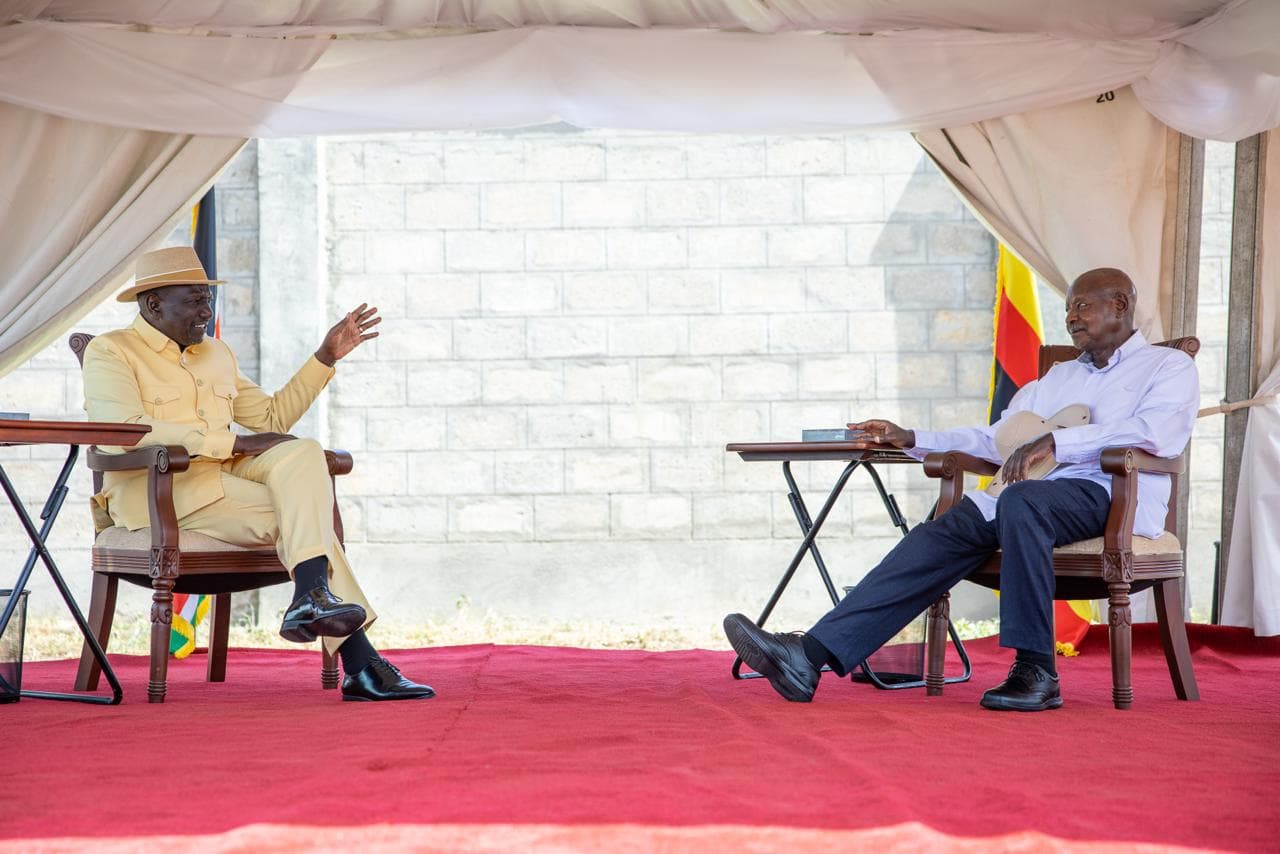We're loading the full news article for you. This includes the article content, images, author information, and related articles.
President Ruto has moved to de-escalate tensions with Uganda, framing President Museveni's controversial remarks on sea access as a media misinterpretation, reaffirming the vital Kenya-Uganda economic and strategic partnership.

President William Ruto has downplayed recent inflammatory remarks by Ugandan President Yoweri Museveni regarding sea access, attributing the ensuing diplomatic stir to media misreporting and sensationalism. Speaking in Tororo, Uganda, on Sunday, November 23, 2025, President Ruto reassured both nations that the relationship between Kenya and Uganda remains strong and collaborative.
“I know people in the journalist space try to create an impression that Uganda had said something to the effect that they need to access the sea by all means,” President Ruto stated during a groundbreaking ceremony for the Devki Steel Factory, an event he attended with President Museveni. “Let me assure the naysayers that Uganda and Kenya are brothers and sisters, and we do not have time for negative engagement.”
The diplomatic episode was ignited by comments President Museveni made during a radio interview in Mbale City on November 11, 2025. The Ugandan leader described the geopolitical situation of landlocked countries as “madness” and warned that future wars in the East African Community (EAC) could be fought over access to the Indian Ocean. “That ocean belongs to me because it is my ocean. I am entitled to it. In future, we are going to have wars,” Museveni declared, in remarks widely interpreted as a veiled threat towards Kenya, which serves as Uganda's primary trade corridor.
Museveni also expressed frustration over perceived delays in joint infrastructure projects, such as the Eldoret-Kampala oil pipeline and the extension of the railway network, which are critical for Uganda's economy. His statements echoed similar sentiments from Ethiopia regarding its quest for sea access, heightening regional anxieties.
In the days following Museveni's remarks, Kenyan officials adopted a measured and reassuring tone. Foreign Affairs Principal Secretary Korir Sing'oei suggested the comments were likely “metaphorical” and should not be seen as a literal threat. Prime Cabinet Secretary and Cabinet Secretary for Foreign Affairs, Musalia Mudavadi, also emphasized Kenya's commitment to international law, which guarantees access to the sea for landlocked nations. “We have always, since time immemorial, provided free passage for goods from landlocked countries. This is our international obligation, and it also helps our ports grow,” Mudavadi stated. Mudavadi later met with President Museveni at the Mayuge State Lodge on November 19 to further defuse tensions.
President Ruto’s recent statements in Tororo represent the most direct effort to close the chapter on the controversy. He affirmed that Uganda's access to the sea via Kenya is guaranteed and highlighted ongoing joint projects as proof of a robust partnership. “Uganda is assured of access to the sea through Kenya, and that is why we are not only extending the pipeline, we are also extending the road, and we are also extending the railway,” Ruto said.
The incident has underscored the deeply intertwined nature of the Kenyan and Ugandan economies. Uganda is Kenya's top export destination, with goods worth nearly Sh120 billion traded in the last year, according to President Ruto. Data from 2023 shows Kenyan exports to Uganda at approximately $893 million (USD), with key products including cement, palm oil, and iron. Uganda is also the single largest transit user of the Port of Mombasa.
Both leaders have since pivoted the narrative towards a broader vision of East African integration. President Museveni clarified that his remarks were part of a larger argument for a political federation within the EAC to address strategic security and economic issues collectively. President Ruto has echoed this, announcing that the extension of the Standard Gauge Railway (SGR) from Naivasha to Kampala, and onward to the Democratic Republic of Congo, will be launched as a joint project in January 2026. Additionally, the two nations plan to co-invest in extending the petroleum pipeline.
While President Ruto's intervention aims to restore diplomatic calm, the episode has highlighted underlying frustrations regarding regional resource access and the slow pace of infrastructure development. For Kenya, it reinforces the critical importance of maintaining stable, predictable relationships with its landlocked neighbors, whose economies are vital to the health of Kenya's own logistics and trade sectors. The focus now shifts to ensuring that ambitious joint projects move from rhetoric to reality, solidifying a partnership that is too crucial for the region to falter.
Keep the conversation in one place—threads here stay linked to the story and in the forums.
Sign in to start a discussion
Start a conversation about this story and keep it linked here.
Other hot threads
E-sports and Gaming Community in Kenya
Active 9 months ago
The Role of Technology in Modern Agriculture (AgriTech)
Active 9 months ago
Popular Recreational Activities Across Counties
Active 9 months ago
Investing in Youth Sports Development Programs
Active 9 months ago